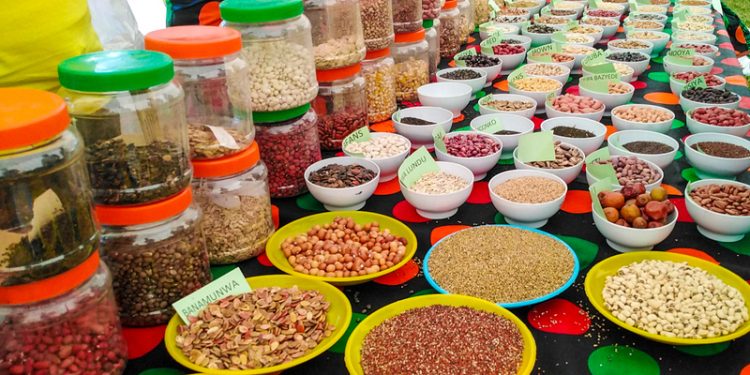Digital Platforms are Changing the Way Africa Sells its Harvest
Digital trading platforms and structured commodity exchanges are increasingly streamlining logistics, improving price discovery, and unlocking new markets for farmers. These tools are changing informal, fragmented agricultural supply chains into formal, more transparent systems.
Bonface Orucho, bird story agency
When 29-year-old Bruk Asefa first tried exporting kidney beans from Ethiopia, he wasn’t just testing a new market—he was looking for a way to leverage his marketing skills and build a business of his own.
But he quickly learned that product quality wasn’t enough.
“We were trying to export kidney beans globally, researching buyers in India, in Dubai… but it was really hard to access those markets,” he explained in an interview.
“We weren’t an established exporter—just starting out—and no one knew us. It became clear that this business is more about connections and networks, and we just couldn’t penetrate it.”
That experience led the marketing and media specialist to launch Ethiopia-Exports.com, a digital platform connecting Ethiopian producers to global buyers.
The site links international buyers to local sellers offering key commodities like coffee, sesame, and pulses, among other products.
Since its 2023 launch, the platform has onboarded over 50 Ethiopian exporters, built a network of more than 500 global buyers, and facilitated trade worth over US$10 million across 25 completed B2B transactions.
“We’re currently piloting with around 15 coffee farmers. Some are from Mirkaj Aferia—a well-known coffee-producing area in southern Ethiopia. Others are from Limu Kafa, where a popular variety called Lek Amti is grown—it’s favored in the Middle East and Gulf region,” he said.
Ethiopia recently posted record coffee export figures, shipping 354,302 tons in the first ten months of the 2024/25 fiscal year—a 70% increase from the previous year. According to the Ethiopian Coffee and Tea Authority, earnings rose 30% to US$1.87 billion.
<script src=”https://bird.africanofilter.org/hits/counter.js” id=”bird-counter” data-counter=”https://bird.africanofilter.org/hits/story/?id=2159&slug=digital-platforms-are-changing-the-way-africa-sells-its-harvest” type=”text/javascript” async=”async”></script>
Long considered the birthplace of Arabica coffee, Ethiopia accounts for around 17% of global Arabica production and supports approximately 15 million livelihoods.
Ethiopia-Exports.com also works with exporters who purchase goods from rural suppliers and store them in warehouses for aggregation. The platform then connects these sellers with international buyers.
“We operate on a subscription-based model. With specialized clients, we also take a share of the profit,” Asefa added.
He sees his platform as part of a wider ongoing shift across Africa where digital tools are being used to ease friction in agricultural trade.
“Buyers from Kenya, Tanzania, Rwanda, Uganda, Nigeria, and South Africa and beyond can source Ethiopian goods through our site,” he explained.
As countries align trade policies and expand digital infrastructure, technology is increasingly playing a central role in Africa’s cross-border agricultural commerce.
Agriculture remains one of the continent’s most significant economic levers. For instance, according to the 2025 African Grain Market Report, the continent’s grain market was valued at US$126.1 billion in 2024, with forecasts projecting growth to US$150.5 billion by 2035.
However, weak market links, pricing disparities, and logistical inefficiencies still hamper the sector’s full potential. According to the World Bank, up to 40% of food produced in Africa is lost post-harvest—amounting to over US$4 billion annually.
In response, many governments are turning to structured agricultural commodities exchanges to formalize trade, increase price transparency, and improve farmer incomes.
On May 28, Côte d’Ivoire launched the Bourse des Matières Premières Agricoles (BMPA-CI)—West Africa’s first national commodities exchange—with its first trading session held two days later.
The platform initially covers cashew nuts, maize, and kola nuts, with a certified warehouse network holding up to 350,000 tons of inventory.
According to Raoul-Alex Zouzou, director of ACBH—one of three licensed brokerage firms—farmers deposit produce in designated warehouses and receive certified receipts, which are then traded through brokers on the exchange.
“With this receipt, producers meet brokers who list the produce online,” Zouzou explained. “Brokers then match the goods with buyers—whether manufacturers, processors, or exporters—based on real market demand.”
Côte d’Ivoire joins a growing list of countries that have launched similar exchanges.
The Ethiopia Commodity Exchange (ECX), launched in 2008, was the first of its kind on the continent and remains one of the most established. ECX played a crucial role in formalizing coffee trade, increasing both volumes and global reach. It has since expanded to include sesame, maize, and other staple crops.
Tanzania’s Mercantile Exchange (TMX) has also made notable progress. In 2024, it rolled out raw cashew nut trading after a multi-year pilot.
In the 2024/25 auctions, TMX facilitated the sale of 18,000 tonnes of cashew nuts at an average price of US$1.53 per kilogram.
Cashew exports are central to Tanzania’s agricultural economy. In the 2024/25 season, the country exported 410,000 tons of raw cashew nuts, earning more than US$583 million—more than double the previous season’s revenue.
According to Tanzania’s Cashew Board, national production rose to 528,260 tonnes, buoyed by subsidies and favorable weather, with targets set at 700,000 tonnes by 2025/26 and 1 million tonnes by 2030/31.
Still, Africa accounts for only 15 of the world’s 125 commodity exchanges, according to the UN Economic Commission for Africa. Many remain underutilized due to regulatory hurdles, financing gaps, and low awareness among rural producers.
However, efforts to integrate these exchanges into broader continental trade policy are gaining momentum.
In October 2023, 14 national commodity exchanges across the continent formed the AfCFTA Association of Commodity Exchanges (ACX), a coalition aimed at harmonizing trading standards, integrating digital platforms, and facilitating cross-border transactions.
The ACX promotes warehouse receipt systems, standardized contracts, and regional policy alignment to enable smoother trade flows within the African Continental Free Trade Area.
According to Asefa, platforms like Ethiopia-Exports.com complement this effort by helping producers tap into markets that were previously out of reach.
“Digital platforms can fill a critical infrastructure gap,” he said. “But they must be backed by integrated logistics and payment systems. That’s the only way digital trade can really take off under AfCFTA.”
He sees partnerships with mobile payment services—like Kenya’s M-Pesa—as key to unlocking growth in regional trade.
“But it’s not just about goodwill,” Asefa concluded. “We need strong policy action from governments and regional institutions. The African Union has a vital role to play in making this work.”
bird story agency








